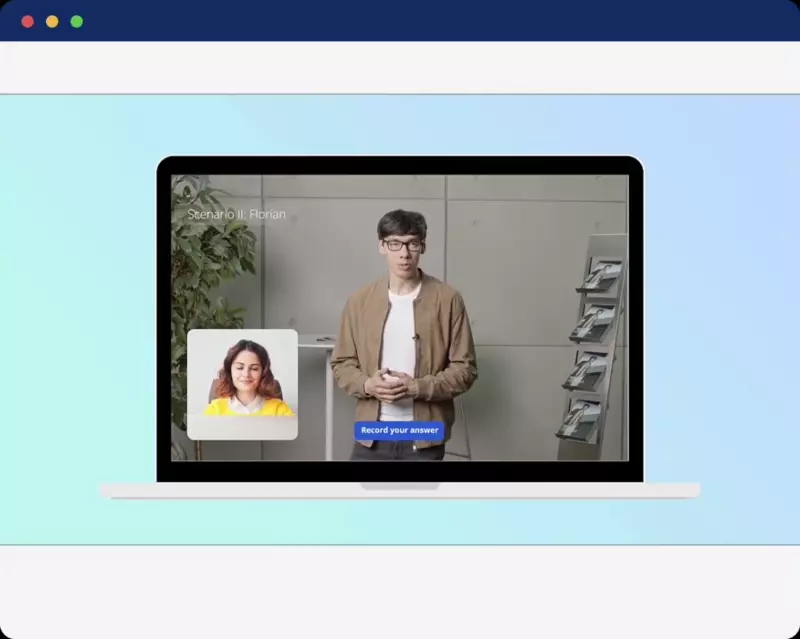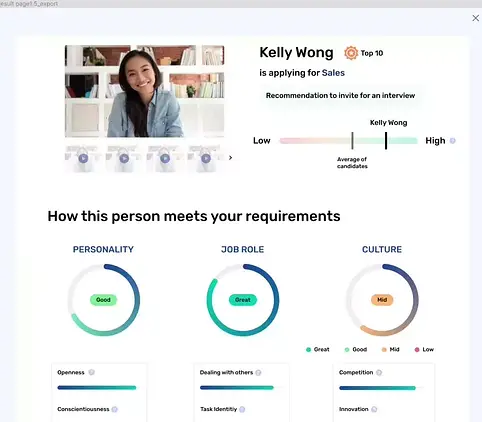A survey of 25,000 Americans in spring 2022 reveals that 58 percent of workers have the opportunity to work from home at least one day a week.
Remote work is happening more than it ever did before.
This trend is only accelerating - according to the predictions made by scientists at Ladder, 25% of all professional jobs in North America will be remote by the end of 2022.
But just because workers aren’t physically present in the office, shouldn’t mean that they should take a break from skill-building.
In fact, since the shift to more remote work, effective communication and decision-making became more important than ever.
In other words, the development of soft skills in the workplace has enjoyed more recognition than ever before.
So what’s the secret to mastering your employee’s training programs remotely? Is it possible to upskill employee soft skills remotely?
What’s in this post?
- The demand for flexibility and mobility
- The rise in remote training programs
- The importance of soft skills in remote work settings
- Key components of successful training programs
- AI: The secret weapon for soft skill training
The Demand for Flexibility and Mobility
Since the pandemic, many of us have transitioned from full-office jobs to remote or hybrid work models - and many of us didn’t complain either. Saving costs on eating out for lunch, not having to use public transport to get to and from the office, or best of all, getting to wear sweatpants while sitting in team meetings (I mean, didn’t we all?)

The perks of hybrid work were felt by the millions who had to make the abrupt shift in 2020, and despite the sudden and hectic shift, with the simultaneous closure of schools and shops, we did indeed see a quick adaption to the new 'Covid-norm'.
But it wasn’t just employees who were on that page; for companies, this flexibility meant modified workplace business operations, different urban facilities requirements, and new workplace location options.
The shift ultimately provided a once-in-a-generation opportunity to reimagine everything about how to run a company. Without commute time, some employers even found that their workers were working longer hours, retaining productivity and even saving the company costs.
Flexible working also had positive environmental factors - a study that explored the impact of future flexible working model evolution on the environment revealed that these new working models (such as adopting workplace sharing in large organizations and hybrid work models) could result in tangible benefits for reducing congestion and pollution from transport, specifically reducing both commuting times and CO2 emissions.
The Rise in Remote Training Programs
It makes sense that as we’ve come more remote-based in our work, there has been a fast adoption of digitalization and AI. As storefronts went dark and ‘home office’ became the new hot word, video interview technologies, and online skill testing software were integrated into the HR tech stack to keep them on track.

A global survey of 800 executives revealed that 85% of businesses have somewhat or greatly accelerated the implementation of technologies that digitally enable employee interaction and collaboration, such as video conferencing and file-sharing.
Importance of Soft Skills in Remote Work Settings
Sure, soft skills have always been crucial aspects that help people prosper at work.
But in times where in-person interactions are limited, developing and perfecting employee soft skills has almost become a make or break to continue fostering a healthy working culture of growth, trust, and continuous learning.
In fact, a Deloitte Access Economics Study predicts that two-thirds of all jobs in Australia will rely on soft skills by 2030. That’s why organizations are investing in soft-skills training to stay competitive, alongside diversity efforts to empower teams and continue delivering ongoing value for the business.
Key Components of Successful Remote Training Programs
So what makes remote training programs effective?
Provide training programs that engage employees
There is a wealth of information and learning material out there. E-learning has seen a huge spike since, you guessed it, the pandemic struck.
The quick spread of the virus led to the closure of schools & universities across the globe, which positively influenced the eLearning market growth in 2020.
In fact, the e-learning industry is expected to see a growth rate of around 25% through 2028.
But simply because you binge-watch a cooking show, doesn’t mean that makes you a Micheline star chef by the end of it.
E-learning platforms, similar to traditional training practices such as lecturing are passive. Even though they have plentiful knowledge and content, the lack of interaction means that they don’t have the ability to shape behavior, communication, or interpersonal skills.
Such platforms tend to measure variables like how many modules have been completed by the trainee, instead of factors that reflect actual behavioral changes.
These passive methods may be easy for managers to add to their training programs, especially to train their teams remotely, but risk those learning to disengage easily as the information which has to be absorbed is isolated from its context.
Give immediate, personalized feedback to trainees
The learning environment is pivotal for overall employee development. Without regular feedback, there is no way for employees to know in which areas they need to improve, or what they should learn next.
When feedback is limited to annual reviews, an environment of continuous improvement can’t be established, which risks impeding innovative, performance-driven behaviors among team members. Providing ongoing feedback helps employees stay motivated which increases employee retention, helping companies retain their existing talents.
AI: The Secret Weapon for Training Soft Skills
The rise in artificial intelligence is creating new dimensions and redefining the concept of training employees - particularly as the need for remote training programs has been felt by companies globally. As we’re seeing ongoing success in the machine learning scene, a lot of funding into AI research grants has been given, and spin-offs and start-ups are emerging at unprecedented rates.

For example, Retorio's AI training program has been gaining a lot of attention in the remote training scene, particularly for training soft skills. Retorio's AI platform combines video analysis with role-plays of client simulations to offer interactive training solutions for customer-facing roles, such as sales and consulting., etc.
Their clients, including one of Germany's biggest automotive manufacturers, use Retorio to scale up their training programs, as well as coach sales teams' soft skills remotely.
With its tangible recommendations from the AI for sales reps within minutes, sales teams could see how they could improve immediately, and best of all, they could improve their soft skills wherever they were, whenever they wanted.
And this is why companies such as Personio and Proper are also turning to AI platforms such as Retorio to train hundred of their employee’s soft skills as they look to scale up in the post-Covis business environment.
Retail sales programs of the future will be holistic, precise, and closely tied to business outcomes. In a business environment that is more volatile than ever, it’s crucial for organizations to transition to training programs that are not only scalable but provide on-demand, personalized feedback, wherever they are.

Want to learn more about how Retorio's AI training platform can change the game in soft skill training your teams, even from remote settings? Click the button below!



